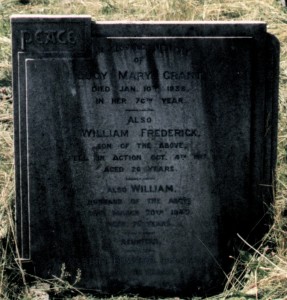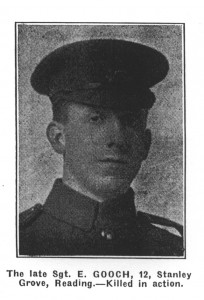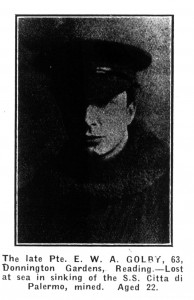William Frederick Grant
Private 48278
8th Battalion Devonshire Regt.
Division 69
Extension
 |
William Frederick Grant was the son of William and Lucy Mary Grant. He is remembered on of his parents grave. The inscription states “Fell in Action.” He was 26. William Grant has no known grave and his name is commemorated on the Tyne Cot Memorial Panel 38-40. He died on 4th October 1917, in action which was officially part of the 2nd phase of the 3rd Battle of Ypres which had started on the 15th September. For the men involved in the offensive which began along an eight mile front on the morning of 4th October it became known as “Passchendaele“.
The preparations for the battle had taken place in fine weather but on the 2nd October it started to rain and the rain continued until the end of the month. The land of Flanders, with its high water table and dykes, became a quagmire and it was virtually impossible to move the guns forward to support the troops. On the 3rd October the Germans were preparing to attack from their front line above Zonnebeke facing Polygon Wood. They sent over a severe early morning bombardment. The British and Australians secretly massing opposite them were also preparing to go. The German barrage killed many men but those unharmed kept their nerve. Just as the Germans sprang their attack a British barrage began and the Australians charged the German line. The Germans were taken by surprise and those who could fled, there was fierce hand to hand fighting and many prisoners were taken. The next day William Grant was in the attack north-east of Polygon Wood. The 8th Devonshire regiment which was fighting along side the Australians reached their objectives but William Grant was killed in action. The battle was to rage on until the 15th November 1917, through mud and rain and worse, against pill boxes and machine guns until the ridge was finally captured. The total losses (killed, wounded, missing or made prisoner) amounted to 244.897 British; 8,525 French and approximately 230,000 German. (Martin Marix Evans – Passchendaele 1997)
The 1901 census indicates that William wasthe eldest of six children, he had one brother and four sisters. The children were all of school age. William’s father after whom William was named is described as a Journeyman Butcher, this means that he had completed an apprenticeship and was qualified in his trade; he had been born in Ireland. Lucy was born in Thatcham and all the children in Reading. The family were living in the Katesgrove district of Reading at 83 Mount Street. By 1911 the family had grownto eight children with five girls and three boys. The three eldest including William were all working at the biscuit factory. William’s father occupation was given as a bacon butcher.
William Frederick Grant was probably commemorated on a Huntley and Palmers War Memorial. However, these seem to have been departmental affairs and the author has not seen a plaque bearing William’s name.

